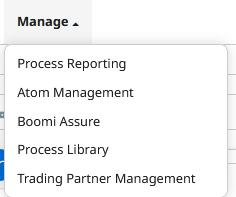MuleSoft and Boomi are two popular businesses that provide reliable solutions for integrating devices, data, and apps in the constantly changing field of enterprise integration. Every platform has distinct characteristics and advantages that make it appropriate for various company requirements. To help you make a wise choice, we will examine the key features and elements of Boomi and MuleSoft in this blog.
Overview of MuleSoft and Boomi
Mulesoft
 MuleSoft’s Anypoint Platform is an integration solution that focuses on API-led connectivity. It enables organizations to connect applications, data, and devices seamlessly. Key features include robust API management, extensive pre-built connectors, and a powerful data transformation language called DataWeave. MuleSoft is ideal for enterprises with complex integration needs, offering flexible deployment options (on-premises, cloud, or hybrid) and a comprehensive set of tools for building and managing APIs.
MuleSoft’s Anypoint Platform is an integration solution that focuses on API-led connectivity. It enables organizations to connect applications, data, and devices seamlessly. Key features include robust API management, extensive pre-built connectors, and a powerful data transformation language called DataWeave. MuleSoft is ideal for enterprises with complex integration needs, offering flexible deployment options (on-premises, cloud, or hybrid) and a comprehensive set of tools for building and managing APIs.
Boomi
 Boomi, a Dell Technologies company, provides a cloud-based integration platform (iPaaS) service designed for ease of use. It features a user-friendly interface with drag-and-drop functionality, making it accessible to non-technical users. Boomi offers over 200 pre-built connectors and supports real-time and batch integrations. It is particularly suited for mid-sized businesses looking for rapid deployment and straightforward integration solutions without the complexity of enterprise-level features.
Boomi, a Dell Technologies company, provides a cloud-based integration platform (iPaaS) service designed for ease of use. It features a user-friendly interface with drag-and-drop functionality, making it accessible to non-technical users. Boomi offers over 200 pre-built connectors and supports real-time and batch integrations. It is particularly suited for mid-sized businesses looking for rapid deployment and straightforward integration solutions without the complexity of enterprise-level features.
Integration Capabilities
MuleSoft’s Integration Capabilities
- Supports various integration patterns, including API-led integration, data integration, and event-driven architectures.
- Offers pre-built connectors for numerous applications, databases, and protocols.
- Allows for complex transformations using DataWeave, a powerful data transformation language.
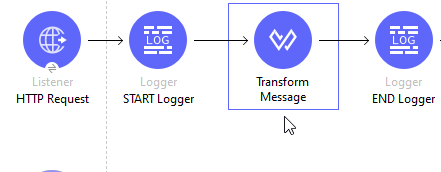
Figure 1: A Mulesoft flow with four components.
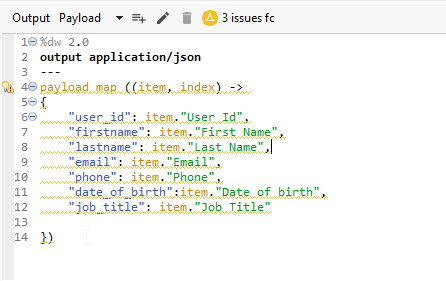
Figure 2: Dataweave script used in Transform message
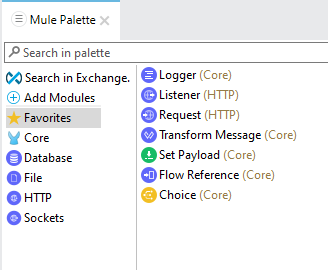
Figure 3: The MuleSoft Mule Palette, listing available components for building flows.
Boomi’s Integration Capabilities
- It provides a visual interface with drag-and-drop functionality, making it accessible to users without extensive technical backgrounds.
- Offers over 200 pre-built connectors and a rich library of integration processes.
- It includes real-time and batch-processing features and is suitable for various business scenarios.
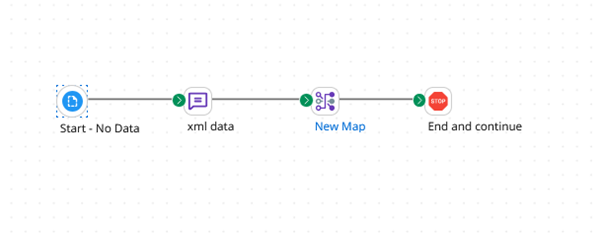
Figure 4: The flow in Boomi with four main steps.
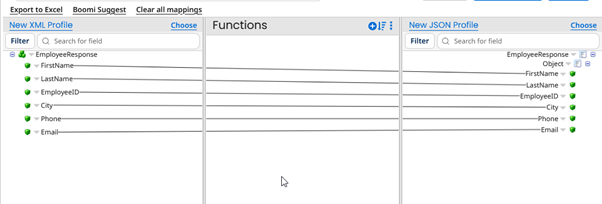
Figure 5: Mapping function used in Boomi
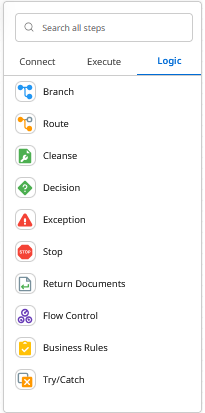
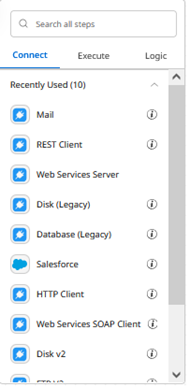
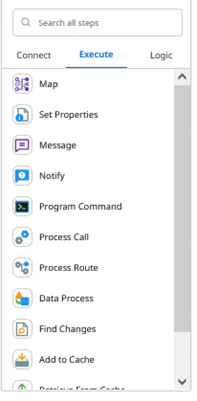
API Management
MuleSoft
- Excels in API management, allowing users to design, document, secure, and analyze APIs from a single platform.
Offers features like API gateways, policy enforcement, and analytics to monitor API performance.
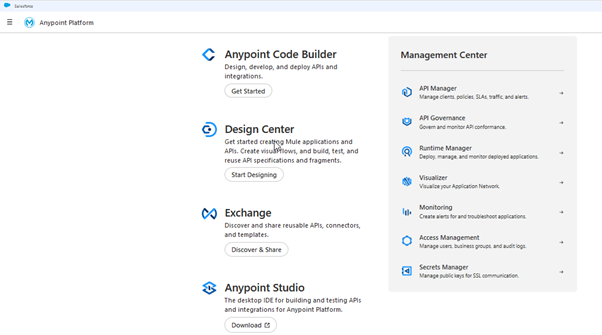
Figure 7: MuleSoft Anypoint Platform and available options
Boomi
- Includes API management capabilities but is more focused on integration than comprehensive API lifecycle management.
- Users can create APIs easily, but the depth of management features may not be as robust as MuleSoft’s.

Figure 8: Management features in Boomi
MuleSoft and Boomi User Experience
MuleSoft
- The Anypoint Platform provides a unified experience for integration and API management, but it can have a steeper learning curve, particularly for new users.
- Offers extensive documentation and training resources to help users get up to speed.
Boomi
- Known for its user-friendly interface, which simplifies the integration process.
- Ideal for business users who need to quickly build and manage integrations without extensive technical expertise.
Deployment Options for MuleSoft and Boomi
MuleSoft
- Offers flexibility in deployment, including on-premises, cloud, and hybrid environments.
- This versatility allows organizations to choose the best option based on their infrastructure and security requirements.
Boomi
- Primarily, it is a cloud-based solution that simplifies deployment and maintenance.
- Some users may find this limiting if they require on-premises solutions for sensitive data.
Scalability and Performance
MuleSoft
- It is suitable for enterprise-level applications and is designed to handle large-scale integrations and high data volumes.
- The architecture supports microservices, enhancing scalability and performance.
Boomi
- While Boomi is scalable, it may be better suited for mid-sized businesses or those with moderate integration needs.
- Performance can vary based on the complexity of integrations and data volume.
MuleSoft and Boomi Support and Communities
MuleSoft
- Offers a robust support system with various plans, including premium options for enterprises.
- Has a strong community and ecosystem, providing forums, events, and extensive resources for users.
Boomi
- Also provides solid customer support and a knowledge base, but the community aspect may not be as extensive as MuleSoft’s.
- Users often report quick response times and helpful support staff.
Pricing
MuleSoft
- MuleSoft offers a subscription-based pricing model containing various features and support, along with their base and support plans for every business size and requirement. The pricing structure of MuleSoft can be complicated, and additional costs may be added when one uses advanced services like API and data quality management. Here’s a pricing reference: https://www.mulesoft.com/anypoint-pricing
Boomi
- Boomi is priced on a subscription basis depending on the specific functionality the businesses seek and the scale at which it is offered. The pricing will most likely fluctuate depending on the number of integrations, used connectors, and volume of data processed. Here’s the pricing reference: https://boomi.com/pricing/
When Should You Choose MuleSoft or Boomi?
When to Choose MuleSoft?
Here are key considerations for selecting the MuleSoft integration platform:
- When your organization requires a robust platform capable of managing complex integrations.
- When you have a technically proficient team of developers who can handle a code-centric approach when necessary.
- When customization is a critical requirement for your business operations.
When to Choose Boomi?
Consider selecting the Boomi integration platform in the following scenarios:
- When the primary goal is quick integration, even if it involves limited customization.
- Ease of use is a key priority and must be a seamless experience.
- When there is a significant need for cloud-based integrations.
Conclusion
Although Boomi and MuleSoft have strong integration features, their user bases and business requirements differ. MuleSoft excels at enterprise-level scalability and complex API management, which makes it the perfect choice for big businesses with complex integration needs. However, Boomi is a fantastic option for companies looking for efficient integration solutions due to its user-friendly interface and speedy deployment.
Your unique needs, technical know-how, and long-term integration plan will determine which of MuleSoft and Boomi is best for you. Both systems offer the resources required to support successful integration endeavors, regardless of your preference for a simple user interface or strong API administration.
Source: Read MoreÂ

